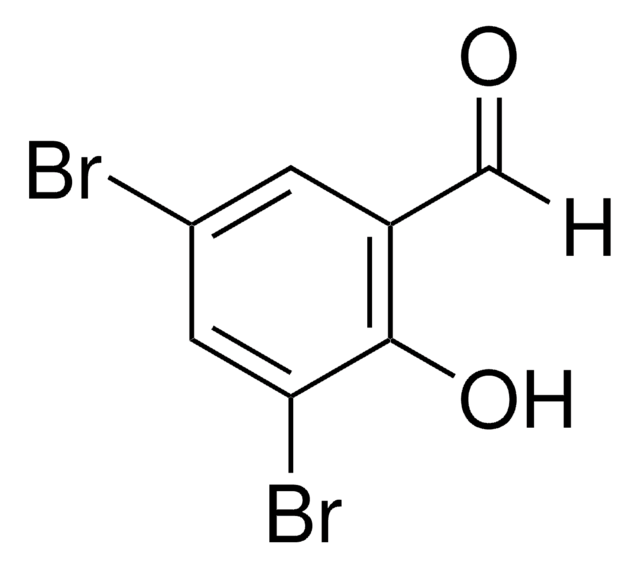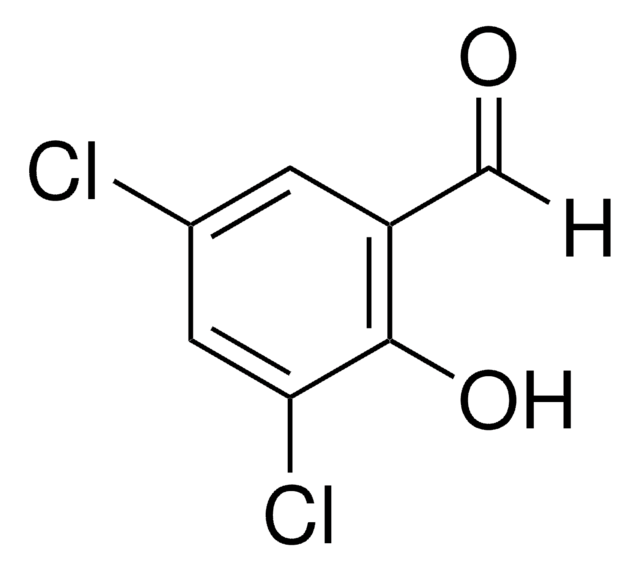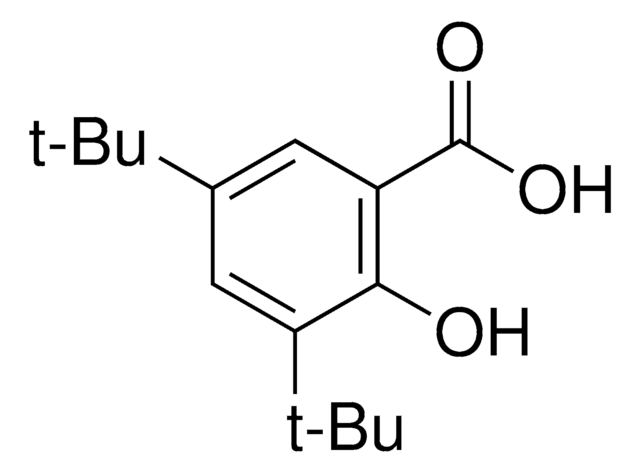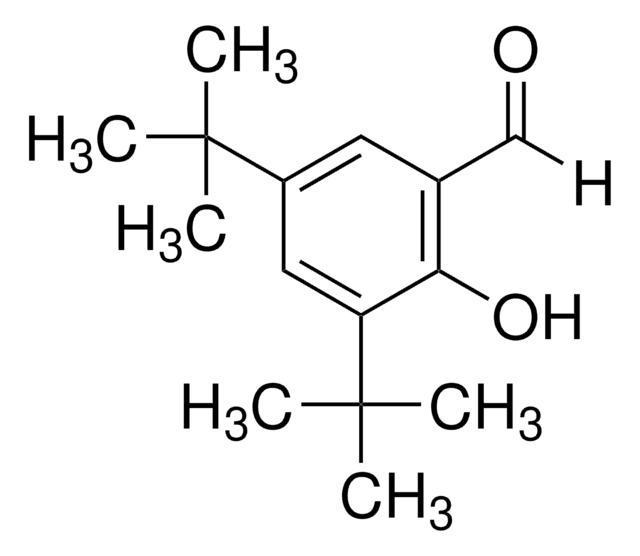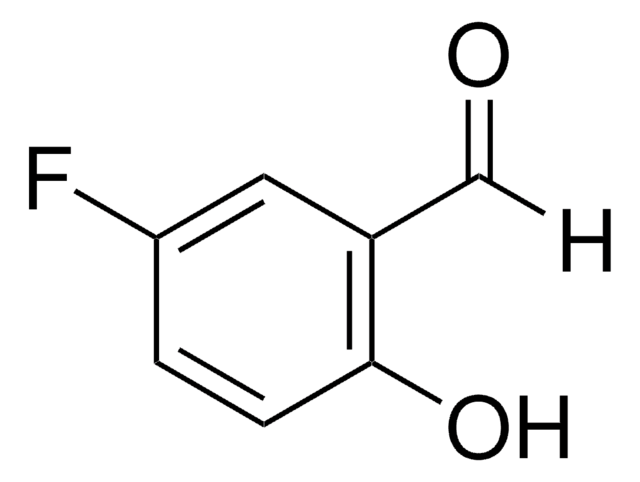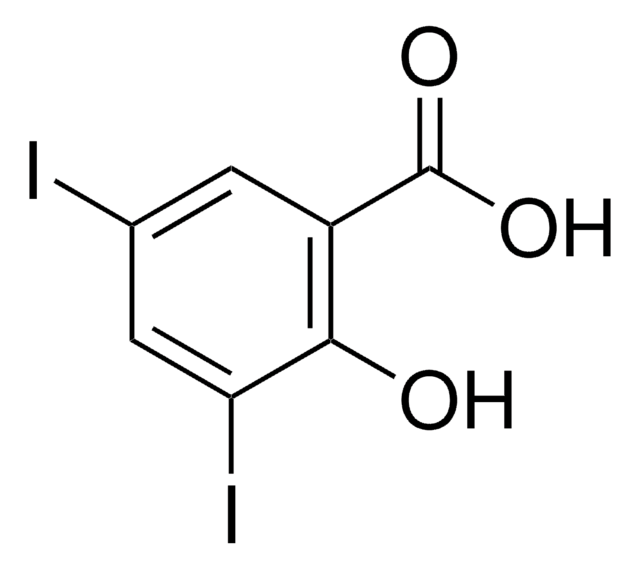All Photos(1)
About This Item
Linear Formula:
I2C6H2-2-(OH)CHO
CAS Number:
Molecular Weight:
373.91
EC Number:
MDL number:
UNSPSC Code:
12352100
PubChem Substance ID:
NACRES:
NA.22
Recommended Products
Quality Level
Assay
97%
form
solid
mp
109-110 °C (lit.)
functional group
aldehyde
iodo
SMILES string
Oc1c(I)cc(I)cc1C=O
InChI
1S/C7H4I2O2/c8-5-1-4(3-10)7(11)6(9)2-5/h1-3,11H
InChI key
MYWSBJKVOUZCIA-UHFFFAOYSA-N
Application
3,5-Diiodosalicylaldehyde has been used in the synthesis of:
- new Schiff bases, (2,4-diiodo-6-[(2-morpholin-4-yl-ethylimino)-methyl]-phenol and 2,4-diiodo-6-[(3-morpholin-4-yl-propylimino)-methyl]-phenol)
- new tridentate ligand, [(2-hydroxy-3,5-diiodo-benzylidene)-amino]-acetic acid (HDBA)
- 3-bromo-N′-(2-hydroxy-3,5-diiodobenzylidene)benzohydrazide monohydrate
Signal Word
Warning
Hazard Statements
Precautionary Statements
Hazard Classifications
Eye Irrit. 2 - Skin Irrit. 2 - STOT SE 3
Target Organs
Respiratory system
Storage Class Code
11 - Combustible Solids
WGK
WGK 3
Flash Point(F)
Not applicable
Flash Point(C)
Not applicable
Personal Protective Equipment
dust mask type N95 (US), Eyeshields, Gloves
Choose from one of the most recent versions:
Already Own This Product?
Find documentation for the products that you have recently purchased in the Document Library.
Customers Also Viewed
Synthesis and antibacterial activities of copper (II) with [(2-hydroxy-3, 5-diiodo-benzylidene)-amino]-acetic acid.
Xu S-P, et al.
Journal of Coordination Chemistry, 63(19), 3463-3470 (2010)
Synthesis and antibacterial activities of metal (II) complexes with Schiff bases derived from 3, 5-diiodosalicylaldehyde.
Xu S-P, et al.
Journal of Coordination Chemistry, 62(12), 2048-2057 (2009)
Jing-Heng Ning et al.
Acta crystallographica. Section E, Structure reports online, 65(Pt 4), o905-o906 (2009-01-01)
Crystals of the title compound, C(14)H(9)BrI(2)N(2)O(2)·H(2)O, were obtained from a condensation reaction of 3-bromo-benzohydrazide with 3,5-diiodo-salicylaldehyde. The Schiff base mol-ecule assumes an E configuration with respect to the C=N bond, and the dihedral angle between the two benzene rings is
Yang Pan et al.
Chemosphere, 144, 2312-2320 (2015-11-26)
During drinking water disinfection, iodinated disinfection byproducts (I-DBPs) can be generated through reactions between iodide, disinfectants, and natural organic matter. Drinking water I-DBPs have been increasingly attracting attention as emerging organic pollutants as a result of their significantly higher toxicity
Our team of scientists has experience in all areas of research including Life Science, Material Science, Chemical Synthesis, Chromatography, Analytical and many others.
Contact Technical Service